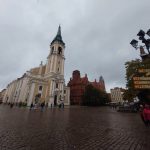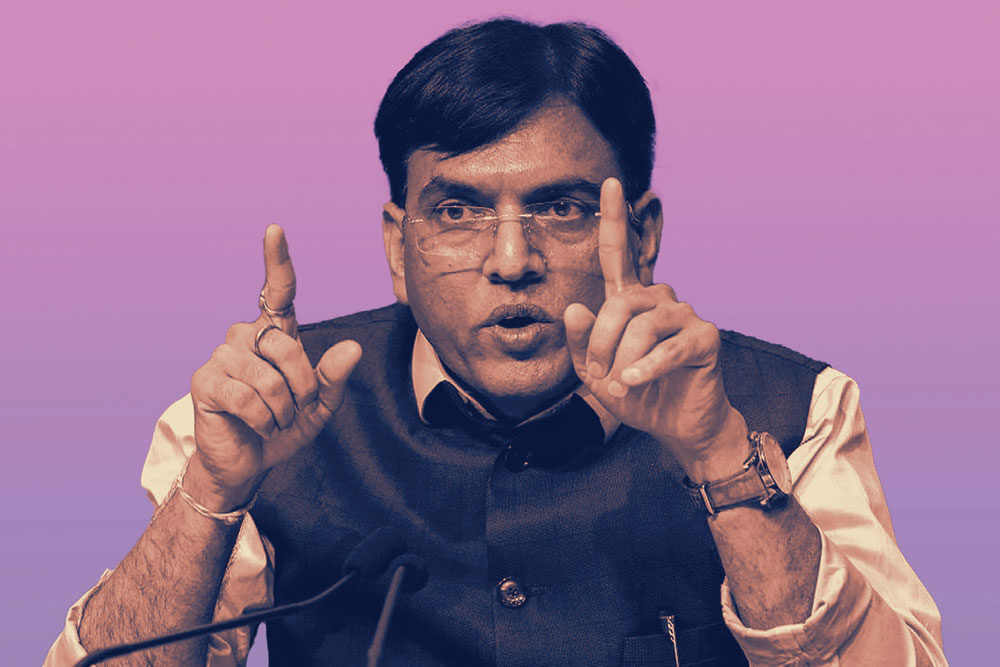Early on July 3, 2:30 am Indian time, Zeteo, a news organisation founded by former MSNBC journalist and broadcaster Mehdi Hasan, released the much-awaited documentary, Gaza: Doctors Under Attack. This came after months of delays by the BBC, which had originally commissioned the movie on the challenges and risks faced by medics and health professionals in Gaza, where all of its 36 hospitals faced Israeli bomb raids. The BBC finally decided not to air the movie despite pressure to do so by intellectuals, celebrities, political analysts and others.
Produced by Basement Films and directed by Karim Shah, Ramita Navai, and Benjamin De Pear, a former editor of Channel 4 News, the more-than-an-hour-long documentary which calls itself a “forensic investigation” into the plight of the doctors in Gaza starts with the March 25 attacks by the Israel Defence Forces (IDF) on ambulances carrying health workers in what is often called the world’s largest open-air jail.
It shows the conditions inside the Al-Shifa Hospital in Gaza City, which Israel bombed out in late 2023 in what Palestinians see as a deliberate attempt by Israel to deny them what they needed the most when their homes and schools were bombed to dust: healthcare facilities for the injured. They argue that the healthcare sector, besides universities and schools, is chosen for strikes and raids by Israel to weaken the resolve of the Gazans and to create maximum deaths.
At the Al-Shifa Hospital, one can see medics in action under the most trying circumstances, without water and electricity. Then a man comes up to the camera and says, in Gaza, surgeons are the heroes. He is Dr Adnan Bursh, head of orthopaedics at Al-Shifa, who would later die in Israeli captivity after months of torture at the notorious Sde Teiman detention camp.
The next scene shows the Sderot region in Israel, where more than 70 people had died in the October 7, 2023, attack by Hamas. It is here we see Israelis looking through telescopes to view the destruction of Gaza by bombs dropped from the sky by the IDF, even as Jabalia refugee camp is transformed into ruins by the Israeli forces.
The documentary focuses on the lives of doctors and other health workers across hospitals in Gaza, where they work under constant surveillance, harassment and the danger of getting killed in Israeli strikes or ground attacks. Israel justifies these attacks, although they are against international laws, in the name of Hamas using hospitals as command-and-control centres – although they haven’t been able to produce any sufficient evidence for such claims, as the documentary reveals.
The film tells the unimaginably tragic stories of horror of the Palestinians: children brought in dead (sometimes the doctors see their own motionless son or daughter on the blood-spattered table), women brought in without limbs, doctors themselves getting seriously injured – all through the eyes of the medics and other health professionals in the face of relentless and vastly disproportionate strikes in response to the Hamas attacks of October 7. The documentary puts the spotlight on the arrests, detention and torture of doctors through survivors, Israeli whistleblowers and Palestinians who have taken videos of hospitals and other buildings caught in IDF missile attacks.
The videos used in this documentary include those taken from different hospitals, including the key Al-Shifa, Indonesian Hospital, Al-Adwa, European Hospital, Al-Ahli Hospital and various others filled with the screams of children and floors covered with blood, as surgeons and others battle to save the lives of survivors with whatever means they have. Dr Adnan al-Bursh is shown saying they use inventive methods to treat the badly wounded patients.
Bursh and his colleagues, such as Mohammed Obeid, had to flee from one hospital to another after each was bombed. But they decided not to stop, refusing to leave the wounded to die. Most of these doctors, the documentary discloses, spent all their time in hospitals and are often the last ones to leave when bombing starts. Israel often warns doctors to abandon hospitals while they are attending to patients before bombing them and then launching a ground attack with tanks. Thousands die – many of them doctors and healthcare professionals.
Often, the film shows, doctors are rounded up, stripped, and then transported to detention centres – or what the film identifies as black sites, where all are fair game for the enthusiastic, trigger-happy IDF soldier. Some others are taken to Israel, alleged to be either terrorists or Hamas sympathisers, and tortured in the most gruesome ways before they are released or disappeared months later.
The documentary says that the IDF targets not only medical equipment but also solar panels of hospitals before they launch an all-out attack, including on maternity wards, to cut off electrical supply. Surprisingly, the documentary features Israeli whistleblowers – mostly doctors – who allege that Israeli medics not only deny treatment to the detainees, but are also complicit in the torture of those who are held without trial and then asked to leave for want of proof.
Some of the stories are harrowing, to say the least: of doctors finding out that several members of their family were killed in Israeli bombings, and of doctors like Khaled Al Serr who was picked up from the Nasser Hospital in Khan Younis, whose family waited in worry for months before he was released after being badly tortured in detention centres. One of the doctors is shown saying that at IDF check-posts, doctors are identified and immediately arrested and taken away. Most of them come back with stories of severe beatings, and the scars are there for all to see. An elderly health worker says he was made to sit and stand in stress positions, manhandled for hours and had his toenail plucked out before he passed out. The film also zooms in on the tragic life of Dr Khaled Hamouda, who lost 10 members of his family, including his daughter, in Israeli aerial attacks.
That Israeli medics are ready to turn whistleblowers and speak on condition of anonymity about the ill-treatment of doctors brings to the fore the rigorous work done by the main reporter of this documentary, Ramita Navai. Remarkably, the crew travels to various parts of occupied regions, from the West Bank and Ramallah to Cairo in Egypt, as well as Israel, to meet doctors to get their version of what is a deliberate targeting of medics and health workers to add to the woes of a region that, as they say, is witnessing a war of genocidal proportions.
The film also shows statements from Benjamin Netanyahu’s colleagues, like his finance minister, Bezalel Yoel Smotrich, who said in May this year that “within a few months, we will be able to declare that we have won. Gaza will be totally destroyed.”
Gaza: Doctors Under Attack is a documentary that surveys the witnesses of one of the most gruesome chapters of a decades-long war on civilians, dehumanising them as accomplices to terrorist activities. The sight of an emaciated and wounded child asking for grapes and mangoes, half-smilingly, when asked by his doctors what he wanted, is a constant reminder of the crime of deliberate starvation by a power that continues to deny any wrongdoing – including sadistic killings of children by IDF snipers, a story broken by Israeli newspaper Haaretz with no major consequences. One of the whistleblowers tells Navai that when it comes to crimes committed on Palestinians in Gaza where at least 1,500 doctors, nurses, and healthcare workers have been killed since October 2023, by rough estimates, there is no cover-up needed because that is business as usual in the higher echelons of powers within the IDF. Israel’s justifications range from national security concerns to the war on Hamas, whether or not they break international laws.
This isn’t the kind of documentary that lets you sleep easy – it forces you to confront the depths of human cruelty.
/wp-content/uploads/2025/07/al-shifa-hospital-in-gaza-april-2024.jpg)

/wp-content/uploads/2025/06/Cover-OpenMinds2025.jpg)












More Columns
Indian Companies Have a Ransomware Vulnerability Open
Liverpool star Diogo Jota dies in car crash days after wedding Open
'Gaza: Doctors Under Attack' lifts the veil on crimes against humanity Ullekh NP